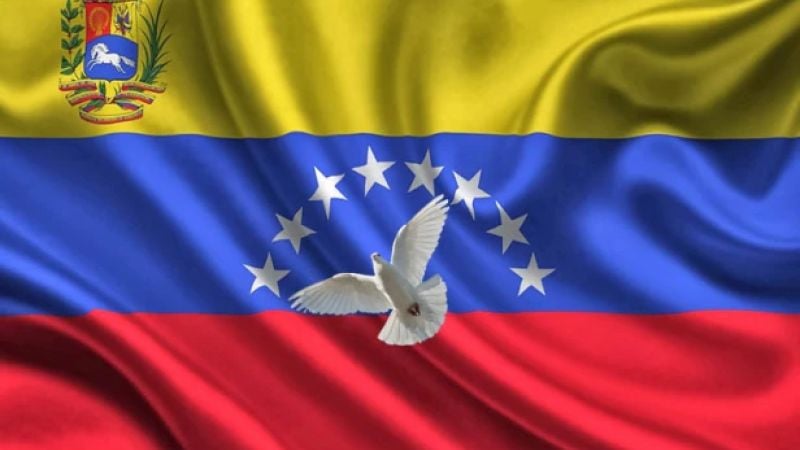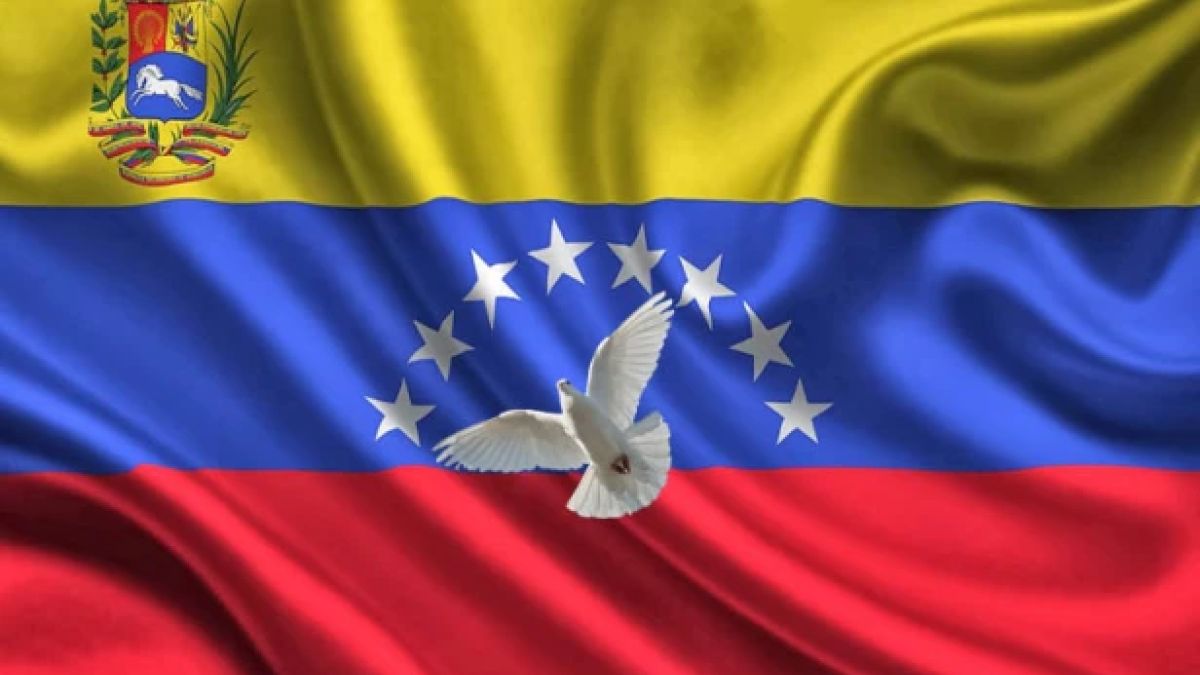The Bolivarian Diplomacy of Peace in defense of the Essequibo


Internet

Published at: 15/12/2023 06:00 PM
Here in Venezuela the People are in charge and on December 3rd, they gave an order to the
Bolivarian Government and it immediately began to take action accordingly.
It is important to be clear that the Constitution of the Bolivarian Republic of Venezuela (CRBV) in its article 10 clearly states that our territory comprises it: “The territory and other geographical areas of the Republic are those that belonged to the Captaincy General of Venezuela before the political transformation that began on April 19, 1810, with the modifications resulting from the treaties and arbitral awards not vitiated by nullity”.
In this way, the
territorial issue is constitutionally defined and does not allow any type of
alienation, it is imprescriptible and inalienable. Therefore, it is subject to a constitutional
blockade, which means that no one can dispose of the territory
without serious violation of the law.
It should also be known that
the concept of territory encompasses components of the geographical area that
consists of spaces: continental and insular, lake and river, territorial sea, marine
areas, their soil and subsoil, continental,
insular and maritime airspace and, of course, the resources found in them.
It was then that the
need to propose and approve a law that aims to establish the
means and mechanisms aimed at the defense of the territory of Guiana Esequiba, currently usurped
by the Cooperative Republic of Guyana,
as a result of the Arbitral Award of 1899, with the purpose of ensuring the sovereignty and territorial
integrity of the
Bolivarian Republic of Venezuela.
Reviewing
history again, with the declaration of Independence in 1810 of our nation, the
Constitution of 1811 enshrines a free and independent Republic and
later that of 1821 corresponding to the formation of Gran Colombia,
defines the territory of our country as the one that corresponded to the General Captaincy, which in a meridian way, in the Constitution of 1830, it is determined that it is
precisely the one that corresponded to the Captaincy
General of Venezuela before the
political transformation of 1810.
This is why it is established that our country has historical and legal titles that have been defined since its republican origin with a territory consistent with Uti Posseditis Juris, meaning that ownership grants original sovereign rights.
With
a view to the restoration of legality and respect for rights
Since then, in 1899,
with the signing of the Paris Arbitration Award,
Venezuela has not stopped raising its voice
of protest, but it was only until the full discovery of the fraud in
the middle of the 20th century that it went to the United
Nations, which led to the signing and entry in 1966 of the Geneva Agreement.
Thus, the territorial
dispute must be discussed on the basis of the provisions of the Geneva Agreement of February 17,
1966, still in force and signed by Venezuela, Great
Britain and British Guiana (now Guyana ) and in which the dispute of Guiana is recognized
That sequiba.
The fact is that according to the Geneva Agreement of 1966, “no act or activity carried out
while this agreement is in force shall constitute a basis for
asserting, supporting or denying a claim of territorial sovereignty in the
territories of Venezuela or British Guiana, nor for creating the right of
sovereignty in those territories, except to the extent that such acts or activities
are the result of any agreement reached by the joint commission and accepted in writing
by the Government of Venezuela and the Government of Guyana” (Numeral 2,
Article V). For the past few
decades, this Agreement has been implemented in search of a peaceful
and satisfactory solution for both parties.
This is not a BORDER
DISPUTE, it is a TERRITORIAL DISPUTE because it is not appropriate to talk about
borders given the existence of a territorial dispute, so maritime
territory cannot be delimited until the
dispute, which is a historical remnant of colonialism, is resolved.
Then, there is an obvious
violation of the
Geneva Agreement by Guyana when it granted a concession to the transnational company Exxon Móbil
in 2014, since it is granted on an undelimited maritime space.
The Agreement is also violated when it is not known that any
activity or settlement on the territory in dispute does not generate
any rights and for this reason the government of Guyana
must comply with the law and international law because as long as the
dispute over the Essequibo exists,
neither party can grant concessions in the territory and in the undelimited maritime space.
The Constitutional
Path of Bolivarian Peace Diplomacy
The Bolivarian Revolution exercises
the actions established in Article 153 of the CRBV on diplomatic efforts with a view to protecting its inalienable sovereign
rights in the controversial territory of Guiana Esequiba. Under the premise of peace diplomacy, our country has
a historic tradition of promoting Latin American and Caribbean
integration and unity.
While it is true that we seek
a brotherhood among the Peoples of the region, we will not allow Guyana to attempt to transnationalize the territorial
controversy with a view to escalating to a conflict with imperialist support.
Venezuela and Guyana must prevent factors
outside the controversy, such as Exxon
Mobil, from attempting to confront the two countries and affect good bilateral relations.
Historically, our
country has been the best contributor to Guyana's economic and social development, with mechanisms such as Petrocaribe, so the claim that it is trying to prevent the economic development of the neighboring country is
meaningless.
Venezuela's position will always be to insist on respect for
the Geneva Agreement and
international law, through peace diplomacy so that Guyana can resume the path of debate and
that both countries can achieve a peaceful, just and satisfactory solution for both parties.
AMELYREN BASABE/ DECK WRITING